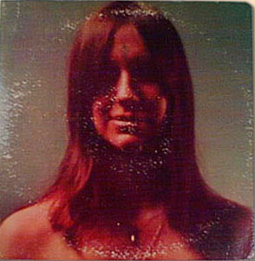Patty Waters – College Tour ESP-Disk ESP 1055 (1966)
Patty Waters was one of the first truly experimental singers. She introduced abstract, avant garde, wordless singing — based on everything from shrieks, whispers, and hums to grunts and moans — into the fabric of jazz music. But she also integrated more conventional jazz and blues styles. This album was recorded on a tour organized by attorney Bernard Stollman‘s ESP-Disk’ label, with a grant from the New York State Council on the Arts, for a group of ESP-Disk’ artists to tour New York colleges with music departments in April of 1966. Others on the tour were The Sun Ra Arkestra, Ran Blake, Burton Greene and Giuseppi Logan (the last three all appear on these recordings). Much like Sun Ra, Waters moves between wildly disparate styles, and her innovations lie as much in a similar refusal to privilege one style over another as in anything she achieved strictly on the more experimental end of the musical spectrum — where she pioneered techniques later adopted or deployed by the likes of Linda Sharrock, Yoko Ono, Jeanne Lee, Diamanda Galás, and reminiscent of the “extended techniques” of Joan La Barbara too. All that is to say that parts of the album (“Wild Is the Wind,” “It Never Entered My Mind”) track a typical jazz singer’s repertoire in the 1960s (compare Nina Simone), while the weirder parts of this music are akin to much else on the ESP-Disk’ label at the time, when the label was an early bastion of “free jazz”. Waters deserves credit for her facility across that entire spectrum. Rather than juxtaposing those elements as incompatible opposites, she deploys them as part of a universal continuum broad enough to contain multitudes of different elements. As one reviewer put it, this is music for those drawn to “dreams that blur the line between pure delight and hellish nightmare.” Extending that insight, perhaps this is music like Andreĭ Platonov‘s writings, which chose to subjectivize worldly experience by building utopia out of what others typically considered a dystopia. That is to say that this sort of outlook embraces parts of the human condition that many marginalize, discredit or criticize. It finds room for feelings of uncertainty, regret, confusion, pain — in an indifferent, meaningless universe, these can be bestowed with as much value as anything else. This fit into the context of the New Left movement of the 1960s, and the yippie/hippie lifestyle. This also seems to anticipate the May 1968 slogan: «Il est interdit d’interdire» (“It is forbidden to forbid”).
Even for those who struggle to enjoy this music or subjectively consider it “good” should at least recognize that it pushed boundaries and took bold steps into new territory.

